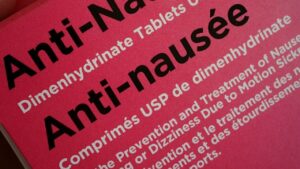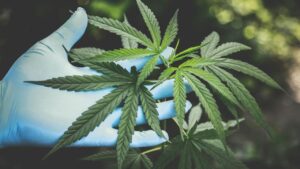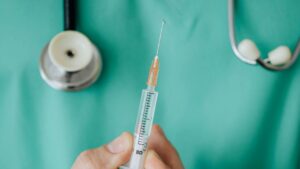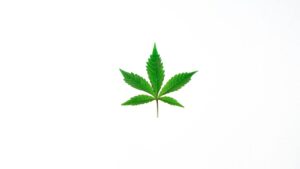An opiate drug epidemic is affecting our nation and our families, and in addition to the large numbers of individuals who use illicit opiates like heroin, far too many Americans are struggling with addiction to prescription opioid painkillers. Opioid addictions can be dangerous and deadly, as these drugs can cause a fatal overdose. Because of this, it is of great importance that you become aware of and fully understand the signs of opiate drug addiction so that you can obtain expert care, treatment, and opiate rehab for this serious addiction.
What Are Opiate Drugs?
Opiates, also called in the common vernacular opioids, are drugs that may either be illicit, like heroin or prescribed as certain painkillers. Used within the medical realm, these drugs have pain-relieving properties (an analgesic effect); however, used illicitly, these drugs create a euphoric, or intensely pleasurable, effect. These effects are due to the manner in which the drug binds to the opioid receptors throughout your body. You may be curious to hear why your body has these receptors, and the answer is one that ties closely to the reason why these drugs have such a prevalence of use and addiction. Humans actually have their own naturally occurring opioid compounds within their body, termed endogenous opioids, an example is endorphins, your body’s natural painkillers. These compounds bind to opioid receptor sites. Activated naturally, these are necessary to help your body carry out essential functions, such as breathing, relaxation, fighting pain and feeling pleasure. When you take an opioid drug, the drug attaches to these receptors—when these exogenous opioids perform this task, your body’s endogenous versions no longer have to their full extent. In situations of use, when a person uses these drug types in high capacities, the body begins to stop producing their own endogenous versions. This is called a dependency.
How Does A Dependence Compare To An Addiction?
Dependence does not equal an addiction, however, within an addiction a person will always have a dependence. What this means is, in situations of prescribed us, a person who uses prescription painkillers, even exactly as prescribed, will likely, due to this class of drug’s powerful effects, develop a physical dependence. It is when dependence becomes accompanied by compulsive and chronic patterns of drug-seeking and using that an addiction is present. Again, a person may become dependent by prescribed use, however, it is when a person deviates from this to use, that the risk of addiction rises. Unfortunately, even people with prescriptions for opioid painkillers may become addicted. As a person becomes dependent on a drug, they begin to experience a tolerance—that is, it takes an increasing amount of the drug to achieve the previously desired effect. In either instance—in prescribed or illicit use, this junction can be where addiction begins to take hold. If a person who has a prescription attempts to alter their dosage on their own to increase the analgesic effect (which constitutes drug use) or a person who has been illicitly using opiate painkillers changes their dosage in an attempt to obtain a better high, they could be one step closer to addiction. This can also occur with users of illicit drugs like heroin. Additionally, as your tolerance rises, and use continues, the risk of overdose becomes higher. As use rises, and your body and brain begin to rely more heavily on the drug, cravings or intense urges of drug-using arise. As a person falls prey to these more and more, and their use becomes compulsive, an addiction is borne.
What Are the Signs Of Opioid Addiction?
In general, any drug addiction will change a person’s behavior. Being aware of these signs of opioid use can help you to better consider your own actions if you are engaged in drug use, that way you know when to reach out for help. Or, for family members and loved ones, knowledge of these behaviors can be key to circumventing further risk and damage from occurring, by granting you an opportunity to intervene and seek help.
Signs Of Opioid Drug Addiction
Every drug of use has a different chemical makeup and mechanism of action. Due to this, the way the drug impacts a person and the adverse effects they create, vary. Paired with the aforementioned behavioral cues, these specific physical and physiological, mental and behavioral signs can better assist you in spotting an opiate addiction. If a person is addicted to an opiate, they may manifest certain signs, including: Physical signs and symptoms of opioid use:
- Sense of euphoria
- Feeling as if they’re floating
- Slowed or uncoordinated movements
- Drowsiness and decreased energy
- Slurred speech
- Small or pinpoint pupils
- Nodding off
- Nausea or vomiting
- Constipation
- Hypotension (low blood pressure)
- Slowed breathing (depressed respiration)
- Slowed heart rhythm (bradycardia)
Psychological signs of opioid use include:
- Struggling to concentrate
- Easily distracted
- Inattentive or forgetful
- Mood shifts
- Depression
- Anxiety
Behavioral signs of opioid addiction include:
- Lack of motivation
- Becoming irritable or agitated
- Inability to make decisions
- Not sleeping enough or at odd times
- Exhibiting signs of doctor shopping
- Spend increasing amounts of time alone
- Secretive behavior
- Mood swings
- Lack of personal hygiene
- Letting work, educational, or family obligations slip.
- Engage in risky behaviors
- Spending money they don’t have (including money for food or bills) to obtain the drug
If you have witnessed even just a handful of these signs 0f opioid use, be cautious, as a person may yet be in the early stages of their addiction. If you have any reason to worry, seek help as soon as possible. Exhibiting withdrawal symptoms may also be a sign of opioid addiction, for this reason, it is important to understand what to look for. Signs of opiate withdrawal may include:
- Runny nose
- Teary eyes
- Goosebumps
- Yawning
- Excess perspiring
- Diarrhea or stomach cramps
- Nausea and vomiting
- Tremors
- Shivering or chills
- Sleeplessness and restlessness
- Muscle and bone aches
- Insomnia
Withdrawal can be very uncomfortable, and in some cases, dangerous. A proper medical detox is highly recommended during this time. For that reason, we strongly recommend that you never suddenly stop using an opiate drug, rather, seek trained help prior to discontinuation.
Getting Help
Though one of the most severe addictions, opiate addiction can be effectively treated. Within this treatment, after drug detox, a person will experience a variety of effective treatment modalities. Medication-assisted treatment (MAT) may be utilized, which pairs various medications with behavioral therapies, creating a comprehensive approach that combats the physical, physiological, mental, emotional and behavioral aspects of treatment. If you or someone close to you has used illicit or medically prescribed opiates to the point of addiction, seek help our help immediately, so that we at Swift River can help you begin to take steps towards a drug-free life. Contact us today.












